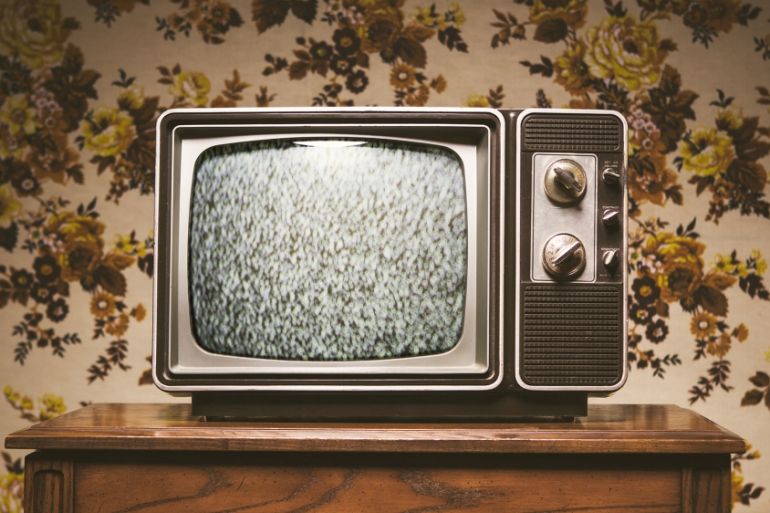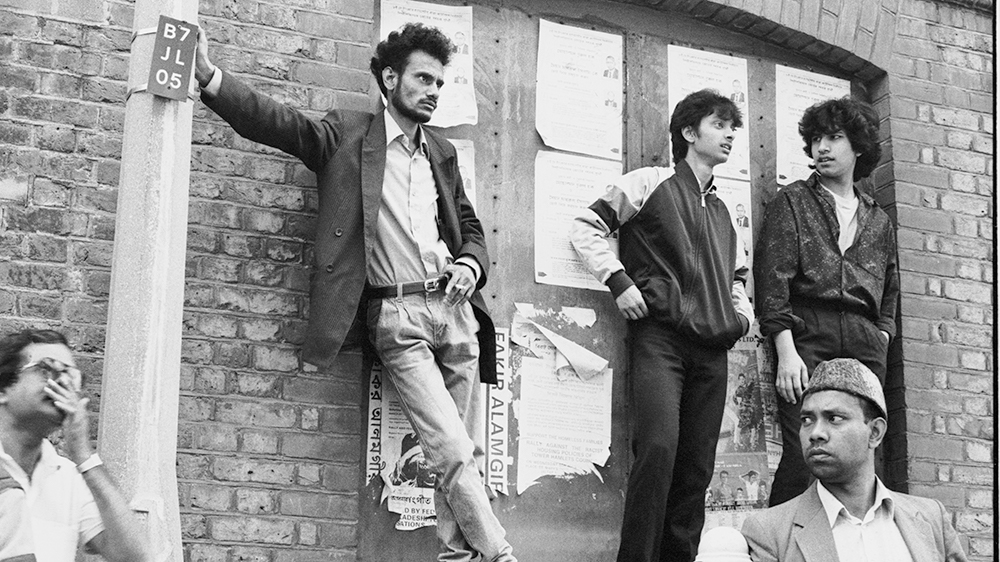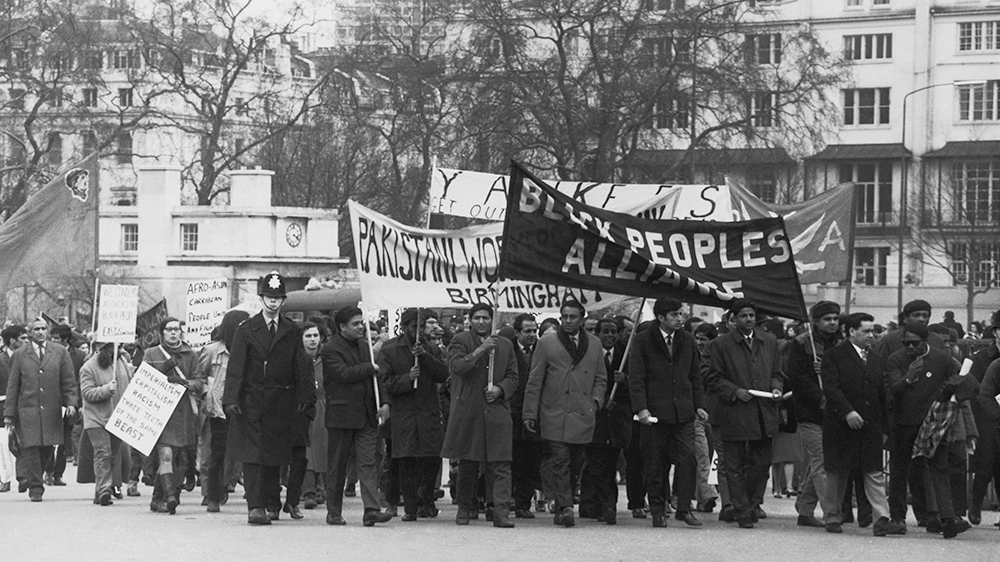Disappearing cultural sins: The case against banning old racist TV shows
How watching an old British series full of racist tropes in Pakistan changed my perspective on whether such shows should be banned.

Over the past two weeks, broadcasters have declared a war of sorts on content deemed to be offensive in its use of language and racial stereotyping.
The streaming service, Netflix, has removed Hollywood classic Gone with the Wind and other sitcoms that featured white actors in black or brownface. The BBC removed an episode of British sitcom Fawlty Towers from one of its streaming services for offensive content and language.
Keep reading
list of 4 items‘Feel less and less like playing’: Vinicius Jr in tears over racist abuse
‘Rendered invisible’: A wave of anti-Arab violence tests US hate crime laws
Germany bans far-right Austrian nationalist Martin Sellner from entry
All of this has followed the fury that came in the wake of the killing of George Floyd by a police officer in the US. As Black Lives Matter protests broke out, racism was once again leading the news. When I found out that broadcasters were banning shows and films, I was deeply uncomfortable. Growing up in Britain in the 1970s and 1980s – a fraught time for race relations – I faced racism almost everywhere I went. I, like many others, accepted it as part of our normal lives and would fight it at every available opportunity.
On a national cultural level, racial stereotypes were everywhere: on television, radio, and in newspapers and magazines.

There was one show that I felt was absolutely offensive. It was a British Sitcom called Mind Your Language. The premise was potentially quite funny. A group of immigrants from India, Pakistan, Italy, Greece and other parts of the world came together to learn English in an evening class.
I mean that does sound like it could be pretty funny, right? It wasn’t.
The writers leant into every cliche and stereotype possible: from funny accents to mocking clothes and culture. It was designed to be offensive to every culture featured in it. It ran for four seasons, starting in 1977, and was regularly repeated over the years. At one point it felt like it was everywhere and many people of colour were heckled in the street by passersby quoting offensive lines from the show.
As I grew older I forgot about the show. Then in 1988, I went to Pakistan on a family holiday to meet relatives. I found myself in my parents’ ancestral village in a very rural part of Punjab.
My grandmother had the only television set for miles and in the cool evenings they would put the set outside and turn on the national broadcaster, PTV. On the roofs of neighbouring houses, children would gather to watch. It was quite the social occasion.
After the news, there was a single English-language programme. On this particular night it was (cue drum roll …) Mind Your Language.
I was shocked that something that featured a crude racist stereotype of a Pakistani (let alone all the other nationalities depicted in it) was airing in Pakistan. But a funny thing happened. My cousins, aunts and uncles – who understood English – began to roar with laughter.
At points when the jokes were coming too quickly, they would ask me to explain them in Punjabi. They did not see what I saw.
In Britain, the racist nature of the show was its appeal. Here in Pakistan, it was the British attitude they were laughing at; the lack of understanding of anyone else’s culture.

One of the main tropes of the show was that people of colour had not integrated into British society. But in my family’s village, they saw that while the British may have ruled India and helped divide it into India and Pakistan, it was the British who had never understood it. In Pakistan, they were laughing at the fact the British characters were all so ignorant of anything other than warm beer, and fish and chips, to use some stereotyping of my own.
When I returned home to Britain, I watched every episode of Mind Your Language and many other series that used racist stereotypes.
It opened my eyes to the value we should place on shows and films that have become snapshots of a different time and place. I recently watched the Hollywood classic, Breakfast at Tiffany’s. It has the most grotesque performance of a white actor playing a Japanese man. Should we ban it? I don’t think so.

By focusing on disappearing cultural sins we forget the value those cultural properties have in allowing us to remember a time of intolerance. The West is racist toward its own minorities. That is a fact. Tearing down statues, protesting, having a national conversation about institutional racism are all steps we should be taking towards understanding. The Black Lives Matter movement cares about ending police brutality. It does not care about ancient films and TV programmes. Our broadcasters, however, do.
But instead of banning old productions, broadcasters should be nurturing diverse voices, giving air time to actors that reflect society and generally getting smarter when it comes to writing, storytelling and race.
Mind Your Language has a very funny premise: foreign students learning English in London. Maybe it is time to remake it. I’d watch.
Follow Imran Khan on Twitter @AJImran